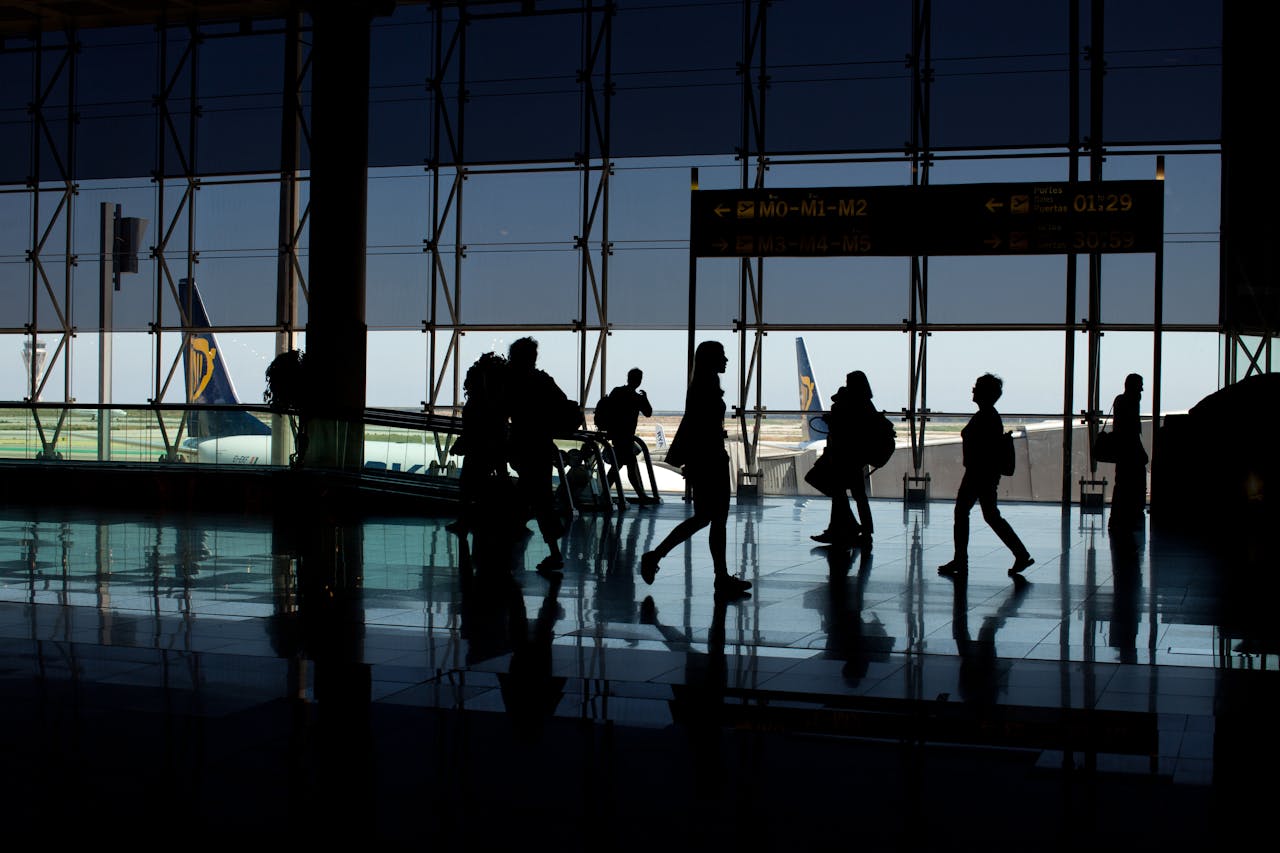A growing share of young Americans no longer treats the United States as the default setting for a good life. They came of age through shutdowns, mass shootings, bitter elections, climate alarms, culture wars, and viral images of institutions wobbling on live TV. At some point, the promise of eventual stability started to sound less like a plan and more like an excuse to keep absorbing shocks without changing the system that creates them.
Now the numbers are catching up to the mood. National polls show large majorities saying the future of the country is a major source of stress, with younger adults disproportionately disillusioned and unusually open to the idea of leaving altogether. For many, the question is no longer “Why would you ever go?” but “Why is staying the responsible choice if there might be a saner way to live somewhere else?”
The Numbers Behind The Mood

Recent surveys from the American Psychological Association and other researchers consistently find around three-quarters of Americans listing the future of the nation as a significant source of stress in their lives, a figure that has stayed stubbornly high across multiple election cycles Within that anxiety, young adults stand out: multiple polls show large shares of Gen Z and millennials considering life abroad in the next few years, not as fantasy, but as an active option.
Parents are not far behind. Surveys have found more than half of parents at least entertaining the idea of raising children elsewhere, especially when they factor in school safety, healthcare, debt, and political volatility. The signal is quiet but sharp: confidence in the long-term deal the country offers its own young families is thinning.
Division, Burnout, And Emotional Isolation
Here is the thing: disagreement alone is not the problem. Americans have always argued. What gnaws at younger adults now is the sense that the country runs on parallel realities, where basic facts, election results, and even public tragedies are filtered into opposing scripts. That constant friction makes trust feel optional and institutions look like partisans in uniform.
Psychological research backs up what people feel. Those who cite national division as a major stressor are significantly more likely to report loneliness and emotional exhaustion, as if the fight over what America “is” has quietly invaded their inner lives.
Social feeds amplify the worst moments: brawling hearings, hateful slogans, threats against workers and officials just doing their jobs. At the same time, those feeds pipe in images of quieter, better-run places abroad. Younger Americans scroll through that split-screen and start asking an unpatriotic but honest question: if other countries function with less chaos, why absorb this one indefinitely.
For many, that mental comparison is the first step. The second is noticing that their urge to protect their own sanity now outruns any guilt about considering life with lower ambient anger.
The Price Of Stability

Beneath the noise sits simple math. Polls from Harris and others show large majorities reporting that their regular monthly expenses have jumped, often by hundreds of dollars, squeezing budgets across income levels. Rent, childcare, food, transport, and medical bills keep climbing, while entry-level wages and early career salaries struggle to keep pace in many regions.
For young adults, that means milestones once baked into the script of adulthood now look optional or impossible: buying a home, starting a family, paying off loans before midlife. When they look abroad and see countries with functioning transit, predictable healthcare costs, and less aggressive tuition, the idea of relocating feels less like escape and more like choosing a system that does not punish basic aspirations.
Safety, Guns, And The Constant Edge

This generation learned to crouch under desks before they learned to drive. They grew up with school shootings, mall shootings, festival shootings, each followed by the same cycle of outrage and stalemate. You do not have to experience direct violence to internalize the message that everyday spaces come with fine print.
Survey data shows concerns about gun violence, hate crimes, and political extremism ranking high among reasons younger Americans consider leaving. When they compare that reality with nations where gun deaths are rare and weapons are tightly regulated, the contrast is stark: buying a concert ticket or walking into a classroom does not carry the same quiet risk calculation.
Over time, that baseline tension stops feeling normal and starts feeling like an avoidable condition. Looking outward becomes a way of asking a blunt question: if there are places where your younger siblings do not need active-shooter drills, why insist those drills are simply part of growing up.
Identity, Rights, And Cultural Whiplash
Layered on top is the sense that fundamental rights and identities are continuously up for debate. Young Americans of color, queer and trans communities, immigrants, religious minorities, women seeking reproductive care, and their allies hear their lives argued over in hearings and headlines as if their status can swing with each election.
That constant whiplash erodes any illusion of permanence. It is not that other countries have solved discrimination or bigotry; they have not. It is that some offer clearer legal baselines on privacy, healthcare, marriage, and speech that do not feel like they might vanish on a judicial calendar. For someone already exhausted, predictability itself becomes a luxury.
The Pull Of A Different Playbook
Unlike past generations who might have daydreamed about leaving with no clear path, today’s young Americans can see concrete routes. Study visas, work-abroad programs, EU blue cards, Canadian and Australian immigration streams, and digital nomad visas turn vague curiosity into forms and timelines. Harris Poll data shows strong interest in dual citizenship and long-term stays abroad among younger cohorts.
Remote work and global hiring make it easier to picture earning in one economy while living in another. Online communities share unvarnished playbooks on taxes, healthcare, housing, and culture shocks. Leaving no longer reads as exile. It looks like a high-effort but realistic upgrade path.
Why Most Will Not Actually Leave

Here is what complicates the story: the desire to go is far larger than the number who do. Moving countries takes money, language skills, immigration luck, family flexibility, and a tolerance for starting over. Data on actual expats still shows younger Americans as a small share of those abroad. For many, the plan stalls at research mode.
But the fact that so many keep one eye on the exits is revealing in itself. Treat it less as empty drama and more as a collective performance review. When educated, globally connected young people feel they might build safer, saner lives under a different flag, they are not only critiquing vibes. They are reacting to policy outcomes.
If the U.S. wants them to stay, the path is not mysterious: reliable rights, livable costs, credible institutions, less background violence, and a political culture where they are not constantly braced for the next lurch. Until those conditions feel real, the quiet search tabs for visas, grad programs, and second passports will keep multiplying.
Sources
This analysis draws on longitudinal findings from American Psychological Association: Stress in America, which documents sustained anxiety about the future of the nation, division, and safety as top stressors. (American Psychological Association) It also reflects the Harris Poll American Expats Survey and related briefs on cost of living pressures, quality-of-life concerns, and openness to moving abroad. (Harris Poll)
Additional context comes from reporting and survey coverage by outlets such as The Independent, Newsweek, Fast Company, StudyFinds, and research on Gen Z attitudes toward migration and safety from Preply and other polling partners. (Fast Company)


